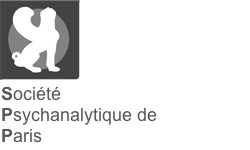| Type de document : | Article : texte imprimé |
| Titre : | Perversion: Possibilities of A Decentralized Democracy (2023) |
| Auteurs : | / Ali HADAVAND |
| Dans : | Psychologie clinique (n° 56, 2023) |
| Article en page(s) : | pp. 49-65 |
| Langues: | Français |
| Mots-clés : | Patriarcat ; Perversion ; Queer ; Jouissance |
| Résumé : |
In this article, we discuss a function of the “perversion” which, although there are in the basic concepts of psychoanalysis, from Freud to Lacan, but in the continues of article it “perverse” from that path to expand and develop from within and articulate itself with some concepts from other realms and look for an alternative approach to explain and intervene in the theoretical and practical world. This approach is a montage of the concepts of psychoanalysis, philosophy, politics and sociology, that the main problematic of which is obtain a critical understanding of our current social situation in the context of the transformations of contemporary history and finally to think about the “politics of the future”. For this reason, wherever we talk about “perversion”, we should absolutely not rely on its pathological meaning, but should see it as a pure form and process.
With this perspective, we will first discuss Freud’s formulation of fetishism and we trace it in Lacan’s works and the distinction he makes between desire and drive. In the following, we try to keep going on our argument by a pluralistic point of view, in accordance with the plurality of drives, instead of a unitarian point of view to man and society. For this purpose, we go beyond psychoanalysis and discuss the concept of the drive according to Leibniz and Nietzsche, as well as the concept of “Becoming-Woman” by Deleuze and Guattari and we fold it again on the concept of “feminine jouissance’s Lacan to measure that’s relationship with queer feminism and its social and political implications. The central question of this article is what effect does the decline of patriarchal functions and Oedipal structures in the late modernity have on the dynamism of desire and drive and various social and political morphogenesis based on it? The political claim of this article is that theology, patriarchy, and capitalism are historically integrated in the nation-state form and then by looking at the experience of the revolutionary movement of “woman, life, freedom” in Iran, we seek to provide a new analytical and discursive framework to think about anti-authority social movements which seeks to establish a horizontal and egalitarian social geometry instead of the vertical and oppressive ruling geometry. |
Exemplaires (1)
| Code-barres | Cote | Support | Localisation | Section | Disponibilité |
|---|---|---|---|---|---|
| 20021957 | K07-1 | Revue | BSF Paris | ψ Réserve : Périodiques | Consultation sur place |





